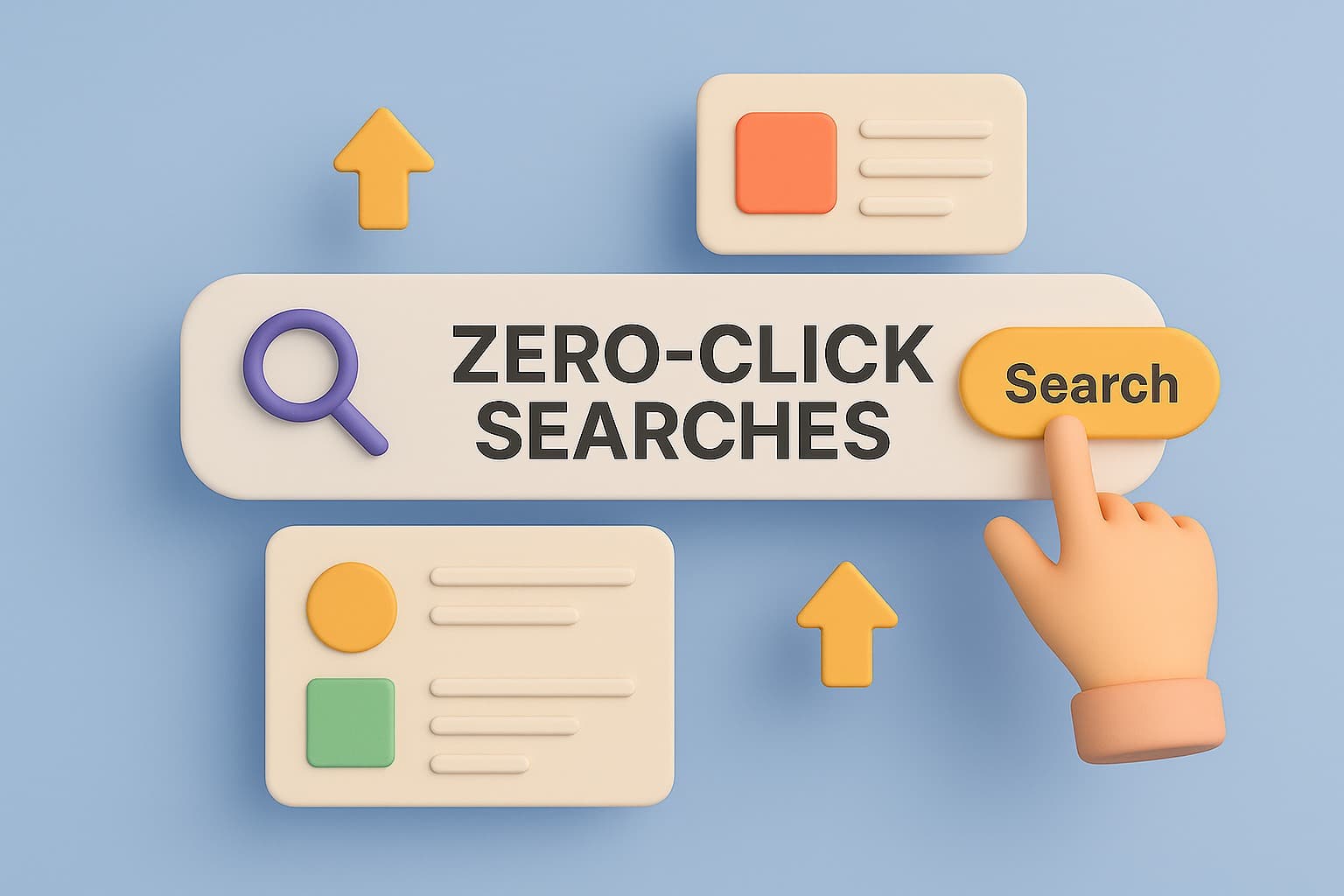Zero-Click Searches, Zero Privacy: The Hidden Tradeoff Behind Google’s Instant Answers

Convenience Has a Cost
Once upon a time, the internet felt like a marketplace — you searched, clicked, explored, discovered.
Now, you just get an answer. Instantly. No clicks required. No thinking necessary.
That’s the convenience of zero-click searches, Google’s way of keeping you inside its own walls.
You type, it responds — snippets, summaries, AI overviews.
But while you’re getting instant answers, Google is getting instant data.
And in privacy, speed always comes at a price.
What Exactly Is a Zero-Click Search?
A zero-click search happens when Google provides the answer directly on the results page —
weather, definitions, calculations, news, or even full summaries pulled from multiple websites.
For users: convenient.
For websites: devastating.
For privacy: complicated.
Every query, every half-typed word, every “People also ask” click is another data point.
You don’t even need to click a link to be tracked.
You simply have to search.
How Google Profits From Your Curiosity
Search has always been Google’s gold mine.
But zero-click results and AI panels turn your questions into behavioral fingerprints.
You type “best migraine remedies.” You think it’s anonymous.
Google correlates it with:
- Your location
- Search history
- Device type
- Time of day
That query then fuels ads you’ll see later — pain relief, sleep apps, health trackers.
Every “zero-click” still has a price tag attached: your attention profile.
You’re not just searching.
You’re training the algorithm.
The Disappearing Middlemen of the Web
Zero-click searches are erasing the middle layer of the internet — independent publishers, bloggers, forums.
Google scrapes their content, summarizes it, and presents it as its own.
You get the answer, but the creators lose the traffic.
One company now controls what information the world sees first.
When you stop clicking, you stop verifying.
And when you stop verifying, you stop knowing the difference between truth and convenient consensus.
The Privacy Paradox
Even if you never click a thing, Google tracks:
- Cursor movements
- Scrolling depth
- Time spent on the page
- Snippet hovers
- Query refinements
Zero-click doesn’t mean zero-tracking.
It means invisible tracking.
By staying on Google’s page, you never leave its surveillance perimeter.
It’s like reading inside a glass box: you see everything, but you’re always being watched.
AI Overviews and the Expansion of the Problem
With AI Overviews, the line between search and surveillance is disappearing.
Google isn’t just retrieving content — it’s generating new content personalized to you.
Every time you refine a question, the system learns your preferences and assumptions.
That’s not just personalization — that’s profiling.
The more you ask, the more the AI tailors the world to your data shadow.
Over time, it creates an illusion:
The AI’s answer = “the truth.”
When in reality, it’s just your biases reflected back at you.
The Hidden Cost of Not Clicking
Clicking used to be a signal of intent.
Now, even intent belongs to Google.
When you don’t click, you stay in their ecosystem longer.
More ad impressions. More behavioral tracking. More time on page.
Zero-click searches are brilliant design — and chilling data strategy.
They’re the digital equivalent of a casino with no clocks.
You think you’re saving time, but you’re really giving it away.
Can You Avoid Zero-Click Traps?
You can’t eliminate them — but you can reduce your data leakage.
✅ Use privacy-focused search engines (DuckDuckGo, Startpage, Kagi)
✅ Click through to original sources for context
✅ Log out of your Google account or use incognito
✅ Use VPNs and privacy extensions (uBlock Origin, Privacy Badger)
✅ Treat AI answers as starting points, not truth
The more friction you add, the harder it is for algorithms to map you.
A Web Without Visits
The internet was built for exploration.
Clicking between perspectives, diving into rabbit holes, discovering nuance.
Zero-click search turns that open web into a fenced garden, where curiosity is measured, monetized, and moderated.
It’s fast, yes — but so is falling.
The next time Google hands you the perfect instant answer, ask yourself:
Did I just save a click… or did I just give away another piece of myself?